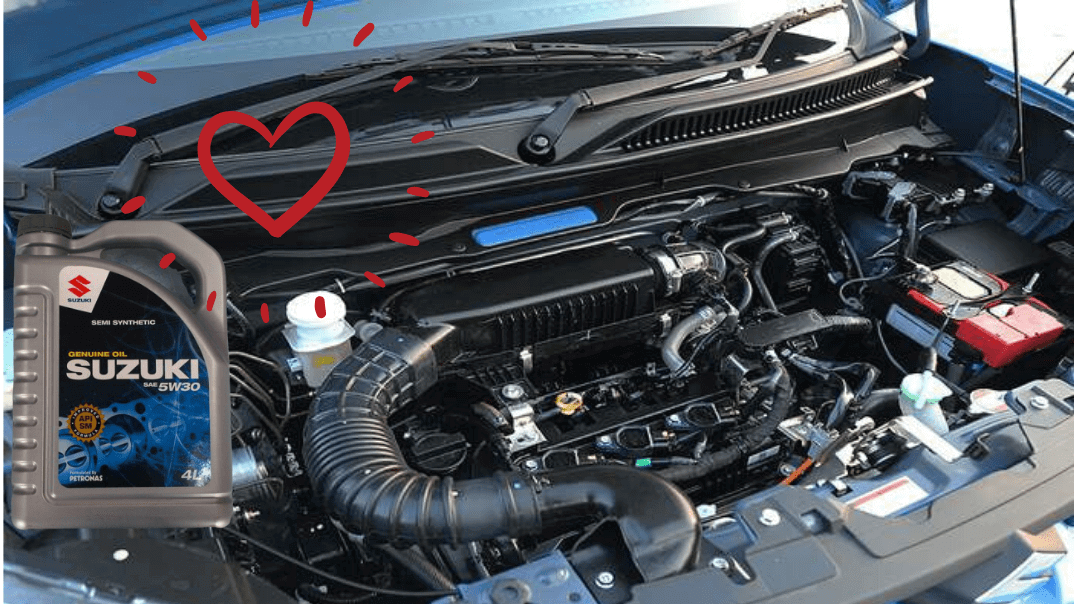 Choosing the best engine oil for your car can be very tricky given the large number of options available. However, your manufacturer’s guide can help you make the right choice.
Choosing the best engine oil for your car can be very tricky given the large number of options available. However, your manufacturer’s guide can help you make the right choice.
If you’re looking to change your engine oil, chances are you’ll face a mind-numbing selection of options in a variety of grades from a countless number of manufacturers.
If you walk in with no background on the subject, it can be difficult to tell each apart or know which is the best engine oil for your beloved car. Is regular better than synthetic? What do all those numbers on the front of the bottle mean? Do you have to use engine oil designed by your car’s manufacturer? The good news is, we’ll be helping you cut through the confusion.
WHAT DOES ENGINE OIL ACTUALLY DO?
Apart from being the lifeblood of your engine? Oil ultimately separates your engine from a very hefty repair bill.
Without lubrication, an engine will run for less than a few minutes, before being severely damaged, and sometimes beyond repair. If you allow your oil level to run too low or you don’t change it on time, you can almost forget about your engine living a long, healthy life. No, seriously. What else is going to perform the following critical functions:
- Lubrication: Engine oil provides a film between the moving metal parts to prevent them from contact, overheating and failure.
- Removing heat: The lubricant transfers the intense temperatures - including that of combustion - and allows them to be dissipated.
- Holding deposits: Engine oil retains combustion accumulations, such as acid and soot, in suspension, subsequently keeping the engine clean on the inside.
- Preventing corrosion: The many moving parts within an engine have to be protected from rust, meaning that acids require neutralising and moisture has to be kept away from vulnerable areas.
- Hydraulic medium: Certain engines use the pressurised oil supply to operate specific functions, such as hydraulic tappets or the camshaft chain tensioner.
Options when choosing an Engine Oil
There are different types of oils for all kinds of specific purposes: high-tech engines, new cars, higher-mileage cars, heavy-duty/off-road SUVs. And if that isn’t confusing enough, there is a wide selections of viscosities. However, if you read your owner’s manual, chances are, you’ll come across your car’s manufacturer’s recommendation for which engine oil is best for your car. The manual may include a reference to Energy Conserving Oils, which simply means that the oil has passed a lab test against a reference oil. It's no guarantee of better fuel economy, but most of the leading brands have at least some viscosities that are so labelled.
WHAT IS VISCOSITY?
Viscosity is a fluid’s resistance to flow, or its ‘thickness’. For example, honey has much higher viscosity than water.
In engine oil, viscosity is denoted by the ‘xxWxx’ code on the bottle (i.e. 20W50). In 20W50 oil, the 20 indicates the oil’s flow at 0°F, W standing for “winter”. The lower this number, the less thick your oil will be in the cold.
The following number (50) represents the oil’s viscosity at 100°C, or 212°F. The higher this number, the more resistant the oil is to thinning at high temperatures.
Oil will naturally thicken in the cold and thin when hot, but needs to maintain an optimal viscosity to maintain function.
If your oil is too thick, it will make your oil pump work harder and affects the oil’s ability to circulate freely within the engine. Circulating oil keeps your engine cool, so less circulation = higher temperatures and more wear on your engine.
Too thin oil, on the other hand, will be unable to cling to moving parts and won’t lubricate your engine properly, again leading to overheating and wear.
Your car manual should suggest the viscosity range you can work within.
THE FOUR MAIN TYPES OF ENGINE OIL:
Premium Conventional Oil
Premium conventional oil is the most commonly used type of oil. It contains additives to withstand the temperatures and breakdown resistance that engines require. It’s usually a manufacturer’s cheapest option, however, it requires frequent changing. This type of oil is more popular amongst low to average-mileage cars with a simple engine design.
Full Synthetic Oil
Full synthetic oil is ideal for cars that demand peak level performance and high levels of lubrication. Full synthetic oil provides higher viscosity levels, resistance to oxidation and thermal breakdown, and helps fight against oil sludge. Plus, it helps improve fuel efficiency and can even increase a vehicle’s horsepower by reducing engine drag.
Synthetic Blend Oil
This type of oil is a combination of synthetic and organic oil. Synthetic blends make it easy for drivers to make the switch from conventional to synthetic oil, which is why this type of oil is becoming increasingly popular among today’s savviest drivers. It’s also a great middle-ground for drivers who want the added protection and performance of synthetic oil, but might not be ready to foot the bill for a total switch to full synthetic oil.
Higher Mileage Oil
Higher mileage oil is specifically designed for cars with more than 120 000 km on the clock. It can help reduce oil consumption, minimise leaks and oil seepage, and can also help reduce smoke and emissions in older engines
CHOOSING THE BEST ENGINE OIL FOR YOUR CAR
We have previously covered the differences between 93 and 95 Octane fuel and which will be better for your specific car. Although this is an important topic, choosing the right oil for your car is even more critical, and the wrong choice can result in a badly damaged engine. When your car is out of service plan, always refer to your owners manual to check what the correct type of oil should be used, or better yet, just bring it to a Suzuki dealership for stress-free service. Remember; using the wrong oil in your car can cause major problems down the road.
There are several standards that are important when selecting engine oils: Society of Automotive Engineers (SAE) viscosity grade, American Petroleum Institute (API) service category, International Lubricant Standardisation and Approval Committee (ILSAC) standards and Association des Constructeurs Européens d’Automobile (ACEA).
SAE viscosity grade refers to how well an oil flows at various temperatures. API service categories involve a number of different tests that measure an oil’s ability to lubricate, clean, cool and protect internal engine components. ILSAC standards parallel API categories to a degree but include an enhanced emphasis on fuel efficiency benefits. ACEA sequences are a series of standards for European cars that some consider more stringent than API and ILSAC requirements.
In addition to the industry standards, almost every car and engine manufacturer has unique oil specifications that involve proprietary tests to ensure oils meet the specific requirements of their power plants. These standards are listed in your owner’s manual, and only oils that meet those requirements (in addition to SAE, API, ILSAC and ACEA standards) should be used in the car.
For example - after years of intensive research, Total and Suzuki teamed up in 2012 to reveal the best engine oil (Suzuki Genuine Oil) for our cars. SAE 5W30 synthetic engine oil variant (API rating of SG+) was unveiled as the recommended oil for most Suzuki cars, such as the Grand Vitara, Swift and Celerio.
Using oil that fails to meet a manufacturer’s specifications can result in engine wear or damage that will not be covered by the new-car warranty. So, that means you are responsible for making sure any oil put into your engine complies with the requirements as set forth in your owner’s manual.
SHOULD I USE OIL FROM A PETROL STATION?
What if I run into an emergency and need to fill up my oil at a petrol station? We often get asked by petrol attendants whether they should check the oil level of our cars. Most of us decline, as we assume that if there are no alarm bells ringing inside the car, everything must be fine, right? Wrong. You should regularly check the oil levels in your car, and doing so at every second fillup should be enough to make sure that engine oil levels do not drop below the recommended level. But what if your oil levels are noticeably low? If there is a clear leak, then it would be wise to top off at the petrol station and make your way to the nearest Suzuki dealership right away. Small leaks can drain oil levels over a period of time and won’t be as noticeable as massive leaks, but without regular checks can be just as dangerous.
Most petrol stations will have a range of oils on offer in case of an emergency. The first thing you should do is to check your owners manual to note what oil your car requires. After establishing that important point, the petrol station employee can tell you if they have the correct type of oil for your car. Most petrol stations stock reputable oil brands which should suffice until you can do a complete oil change at a Suzuki dealership.
Subscribe to our blog and get all our exciting content delivered to you either weekly or monthly.



.png)